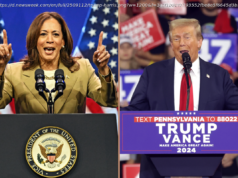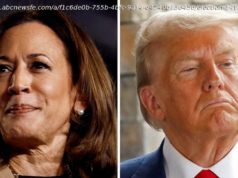There needs to be an across-the-board review of sanctions that limit the humanitarian aid and medicines entering North Korea, writes Michael Bociurkiw.
According to the latest UN humanitarian appeal, a staggering 41% of the population — or an estimated 10.3 million people — continue to suffer from under-nutrition.
So it is equally astonishing that in the joint statement both leaders signed there is no mention of alleviation of the suffering of vulnerable North Korean citizens.
The situation is so dire that hundreds of thousands of children, pregnant women and breastfeeding mothers don’t have enough to eat on a daily basis. While aid agencies operating in North Korea need to be restrained in their reporting of the situation on the ground, eyewitness accounts from dissidents and others support evidence that many outside privileged circles have difficulty surviving.
The UN’s World Food Program, which has some of the best access in the country, says that about one-quarter of children in nurseries it supports are stunted, meaning that they’ve received such poor nutrition in their first few months of life that their growth has been affected.
According to a spokesperson for the International Federation of Red Cross and Red Crescent Societies, infant and maternal mortality rates are higher than global averages, and hospitals and health clinics lack basic medicines, and often don’t have access to water, sanitation and heating.
While natural factors such as floods, drought and bitterly cold weather set people back, international sanctions have had the knock-on effect when it comes to the health and well-being of ordinary people, too. Earlier this year, an influenza outbreak was blamed on sanctions that prevent easy restocking of basic medicines.
Though the return of peace to the Korean Peninsula is a laudable and historic accomplishment, it will mean absolutely nothing to the millions struggling to fill their bellies every day. The Kim family’s zeal to enrich itself and develop the country as a nuclear power has led to a neglect of the North Korean people.
« Humanitarian assistance is a vital lifeline for millions of ordinary people living in DPR Korea, » said the UN Resident Coordinator Tapan Mishra . « However, funding has been rapidly declining every year. »
So far, the burden of funding has fallen largely on a handful of countries: namely Switzerland, Russia, Canada, France and Liechtenstein. In my own experience working on humanitarian emergencies in such reclusive and dictatorial states such as Myanmar, I’ve found that donors are reluctant to stump up cash if there’s a chance it will fall into the wrong hands.
Starved for cash, the UN and other agencies have been forced to roll back programs. A few months ago, the World Food Program was forced to cut off 190,000 children from emergency nutritional assistance.
Aid organizations hope the Singapore summit will open the door for emergency aid to flow more easily into the country. What needs to happen next is an across-the-board review of sanctions that limit the amount and type of humanitarian aid and medicines entering North Korea.
While much of the burden of paying for humanitarian programs has fallen on the international community — the latest United Nations humanitarian appeal asks for $111 million to reach 6 million people in dire humanitarian need. The dismantling of North Korea’s nuclear program should be designed in such a way as to divert money to social programs normally expected of the state.
After decades of neglect, it would be naive to believe the entire burden of care for the over 40% of the population in need can immediately fall upon the government. As the convening state of the Singapore agreement, the United States should call urgent talks with UN member states to at least fill the current multimillion-dollar funding gap for humanitarian needs for 2018. And as its wealthy neighbor, South Korea is well positioned to press for enhanced humanitarian access during future inter-Korean talks.
Of course, in return for the lifting of sanctions, international monitors will need to be allowed into the country — to ensure the fair distribution of fuel, medicines and other imports to benefit the poor — and visa and other restrictions on aid workers should be eliminated.
By entering into the North Korean talks, President Trump seeks to place an indelible signature on history. Even if he does not manage to achieve the elusive goal of denuclearization of the Korean Peninsula, his legacy will almost certainly be bolstered by helping to improve the lives of the North Korean people he so fervently speaks of.






